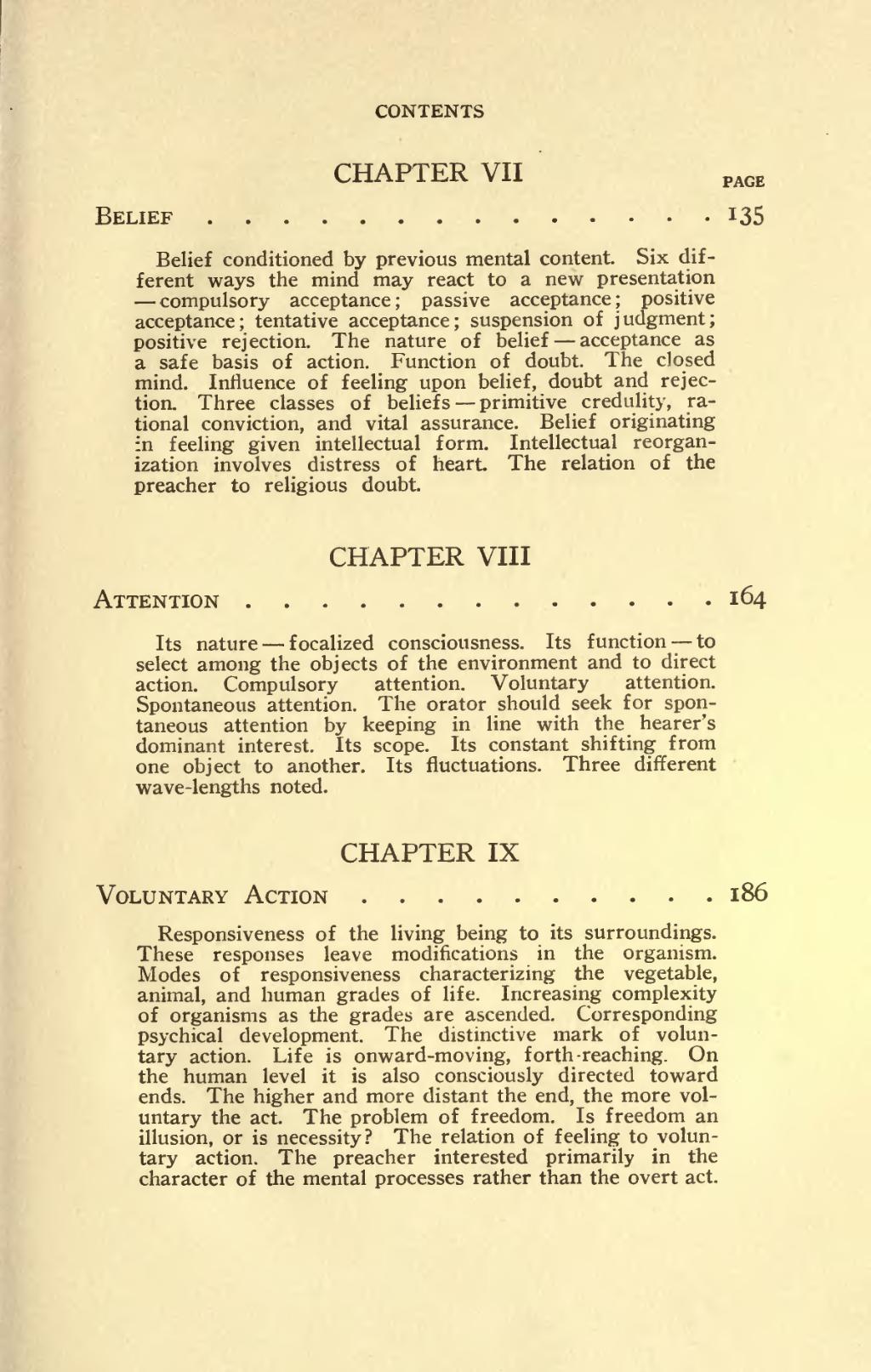CONTENTS
CHAPTER VII
PAGE
Belief 135
Belief conditioned by previous mental content Six different ways the mind may react to a new presentation—compulsory acceptance; passive acceptance; positive acceptance; tentative acceptance; suspension of judgment; positive rejection. The nature of belief—acceptance as a safe basis of action. Function of doubt. The closed mind. Influence of feeling upon belief, doubt and rejection. Three classes of beliefs—primitive credulity, rational conviction, and vital assurance. Belief originating in feeling given intellectual form. Intellectual reorganization involves distress of heart. The relation of the preacher to religious doubt.
CHAPTER VIII
Attention 164
Its nature focalized consciousness. Its function to select among the objects of the environment and to direct action. Compulsory attention. Voluntary attention. Spontaneous attention. The orator should seek for spontaneous attention by keeping in line with the hearer's dominant interest. Its scope. Its constant shifting from one object to another. Its fluctuations. Three different wave-lengths noted.
CHAPTER IX
Voluntary Action 186
Responsiveness of the living being to its surroundings. These responses leave modifications in the organism. Modes of responsiveness characterizing the vegetable, animal, and human grades of life. Increasing complexity of organisms as the grades are ascended. Corresponding psychical development. The distinctive mark of voluntary action. Life is onward-moving, forth-reaching. On the human level it is also consciously directed toward ends. The higher and more distant the end, the more voluntary the act. The problem of freedom. Is freedom an illusion, or is necessity? The relation of feeling to voluntary action. The preacher interested primarily in the character of the mental processes rather than the overt act.
